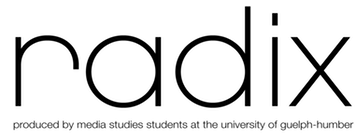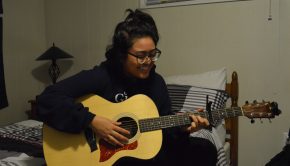Sign On The Dotted Line – If You Can
If you asked various fourth-graders to write their own signature, you may receive some puzzled looks.
The 21st century has brought with it new technology that has changed the way students are learning, and more teachers are using devices as education tools in the classroom. Because of this, the importance of learning how to read and write in cursive is being outshined by learning how to type on a computer.
Enrique Olivo, a student trustee for the Toronto Catholic District School Board, speaks on behalf of all students when matters are brought in front of the board, this being a more recent topic.
Olivo said that cursive writing was a natural part of his everyday school routine when he was younger.
“Teachers wrote in both regular printing and in cursive. It wasn’t mandatory, but despite that, many students decided to use cursive anyway. The most common reason was that it had a much more aesthetic appeal to it – it was prettier than regular printing.”
Olivo has noticed that students are being taught how to communicate digitally today with the use of tablets and computer labs, which is interfering with handwriting. However, he believes that digital skills are an important asset to succeed in the future as well.
“I’m an honest believer in the merits of teaching digital skills to students. I only wish that amidst the exciting world of 21st century learning that we don’t forget the appropriate skills to respond to the question of ‘What happens when your technology breaks down?’”
Considering the advancement and prevalence of technology in society, it is no surprise that to be successful, children need to also master digital skills, like typing, software-use, and online research.
Third-year English major, Veronica Cappadocia, agrees with Olivo’s opinion that handwriting and digital skills should have a balance in the classroom.
“We are lucky to have these extra references to reinforce learning and provide students with visual components. However, the two should have a happy medium in the classroom; one should not be replacing the other.”
Growing up, Cappadocia said that cursive writing was a mature way to write and it was a very exciting technique that she wanted to master.
“In grade three, I remember having a separate notebook with dotted lines specifically for this method of writing. When I got to grade six, cursive writing was mandatory and I had a teacher who would only allow us to write in cursive. The only subject that we could print was math,” said Cappadocia.
“If one had neat-enough cursive, they were able to write in all subjects with a pen.”
Looking back, Cappadocia realized that taking the time to improve her penmanship in school really helped to prepare her for the rest of her life.
“Learning cursive writing at a young age prepared me for my job. Colleagues of mine choose only to write in cursive. Also, expressing my signature would not be possible without knowing and understanding each letter of cursive.”
Olivo reinforces her opinion in that cursive plays a vital role in his career.
“I directly learned from my co-op at a law firm two summers ago, a good number of people write in cursive, and being able to decipher people’s writing is essential to any position that you could find yourself in,” said Olivo.
“Some people can’t even write their own signature, which of course, is a huge problem because I’ve noticed that the older you get, the more you seem to sign a lot of things.”
Olivo believes that one’s penmanship can be a basis for judgment, similar to judging someone based on his or her clothing.
“Although the visual appeal of a person’s writing does not necessarily translate into good content, it cannot be denied that impressions count for a lot. And it is necessary to have every advantage you can, especially in a society that prides itself on appearance.”
Cappadocia is a York University student, who one day wants a classroom of her own.
She understands that the curriculum will change as the years pass.
“If the children that enter my classroom are not familiar with cursive, my ability to provide more examples with it will be insufficient. They will be in a terrible position when confronted with it because they will be placed in an illiterate category. It is essential in the ‘grown up’ world.”
After spending a month in Québec for a summer exchange program, Olivo found a creative way to keep in touch with the people he met from his trip. He decided that social media was the easy way to do it at times, but chose to take the old school approach too.
“I was captured by how vast the world really is. We [sometimes] resort to Facebook and Skype, but the feel of a hand writing on paper is a lot more ‘human’, and that counts for so much.”





